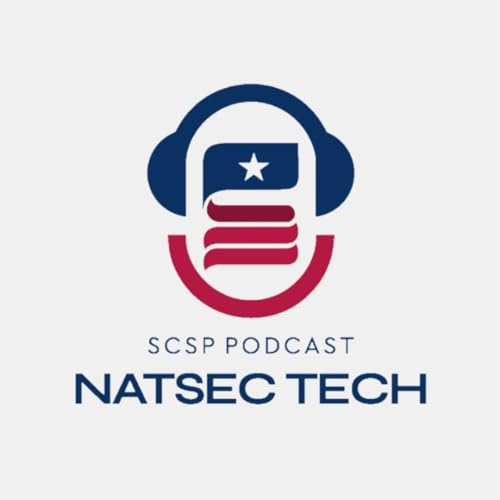The 25th Shanghai Cooperation Organisation (SCO) Summit wasn't just a meeting; it was the unveiling of a strategy. Hosted by Xi Jinping, the summit served as a calculated demonstration of Sino-Russian convening power. More importantly, it marked a concrete effort to operationalize an alternative, multipolar system designed explicitly to bypass Western economic and technological architectures.We just witnessed a significant inflection point in the global strategic competition. The rhetoric in Tianjin was overtly adversarial, with Xi Jinping denouncing "bullying behavior" and a "Cold War mentality." But beyond the rhetoric, the summit launched China's Global Governance Initiative (GGI), formalized commitments to building parallel financial infrastructure, and featured a strategically significant—and complex—détente between China and India.To break down the implications of this pivotal gathering, SCSP’s President and CEO Ylli Bajraktari sat down with colleagues David Lin (China/East Asia/Tech), Joe Wang (Russia/Europe), and Sameer Lalwani (U.S.-India Defense) for an immediate assessment.The Propaganda Coup and Autocratic Convening PowerThe immediate takeaway from the summit was the sheer spectacle. Xi positioned himself at the center of the largest gathering in the organization’s history, flanked by Vladimir Putin and, significantly, Indian Prime Minister Narendra Modi.The timing was deliberate. As David Lin noted, it was a "big week for Xi." The SCO meeting was strategically sandwiched between the first-ever public meeting of Putin, Kim Jong Un, and Xi, and a massive World War II anniversary parade in Beijing featuring thousands of troops and military hardware."It's a huge propaganda win for Beijing," Lin observed. "It gives Xi an opportunity to promote itself as being this global convener," while simultaneously pushing a tech-focused agenda.For Vladimir Putin, the summit was essential for mitigating diplomatic isolation and promoting the SCO as an alternative to NATO."Look at the past couple of weeks of Putin... he's going to be riding high right now," said Joe Wang. While few concrete deals may have materialized immediately that changed the dynamics in Ukraine, the optics were invaluable. "Being seen with President Xi, being seen with Modi... it's like Russia's back. For him, it's a great PR coup."The Architecture of a New Techno-Economic OrderThe summit demonstrated that the SCO is evolving from a regional security forum into the primary vehicle for the PRC to consolidate a bloc resistant to U.S. influence. We are witnessing the acceleration of a bifurcated world, characterized not just by differing political ideologies, but by competing technological ecosystems and financial systems.1. The Export of Digital AuthoritarianismXi formally introduced the Global Governance Initiative (GGI). While promoting "sovereign equality," the GGI is, in practice, a strategic blueprint to legitimize digital sovereignty—the right of states to control domestic information ecosystems, data flows, and technological infrastructure without adherence to democratic norms.The SCO's endorsement provides an institutional foundation for the PRC to export its model of techno-authoritarian control. This isn't just theoretical."At the SCO in particular, China was trying to push a lot of its techno-political agenda," David Lin emphasized. This included announcements that Beijing wants to set up S&T cooperation centers, an “AI application cooperation center,” launch joint solar and wind projects, and push Beidou, its alternative to GPS, across the SCO member states. Taken together, this could directly challenge the open, interoperable architecture championed by the U.S. and its allies, moving toward a fractured, PRC-controlled digital ecosystem across Eurasia.2. Accelerating Financial De-CouplingThe most concrete outcome was the political decision to fast-track the establishment of an SCO Development Bank, seeded with significant Chinese capital. This mechanism, coupled with agreements to expand the use of local currencies for intra-SCO trade, is explicitly designed to circumvent the SWIFT system and erode the efficacy of U.S. financial sanctions.This coordinated effort directly challenges the foundation of U.S. economic statecraft by building a resilient, alternative financial architecture among major energy producers (Russia, Iran) and the world’s largest manufacturer (China).The India Factor: A Strategic RecalibrationThe most significant geopolitical development, and the one that caused the most consternation in Washington, was the visible rapprochement between Xi Jinping and Indian Prime Minister Narendra Modi—Modi’s first visit to China in seven years."For a lot of US-India relationship watchers, Prime Minister Modi’s visit to Beijing and attending this meeting came as a big surprise. It was a shock," Ylli Bajraktari noted.How should the U.S. interpret this move by a critical Quad partner?"Honestly, I think...
続きを読む
一部表示
 19 分
19 分 29 分
29 分 30 分
30 分 30 分
30 分 31 分
31 分 28 分
28 分 29 分
29 分 27 分
27 分
